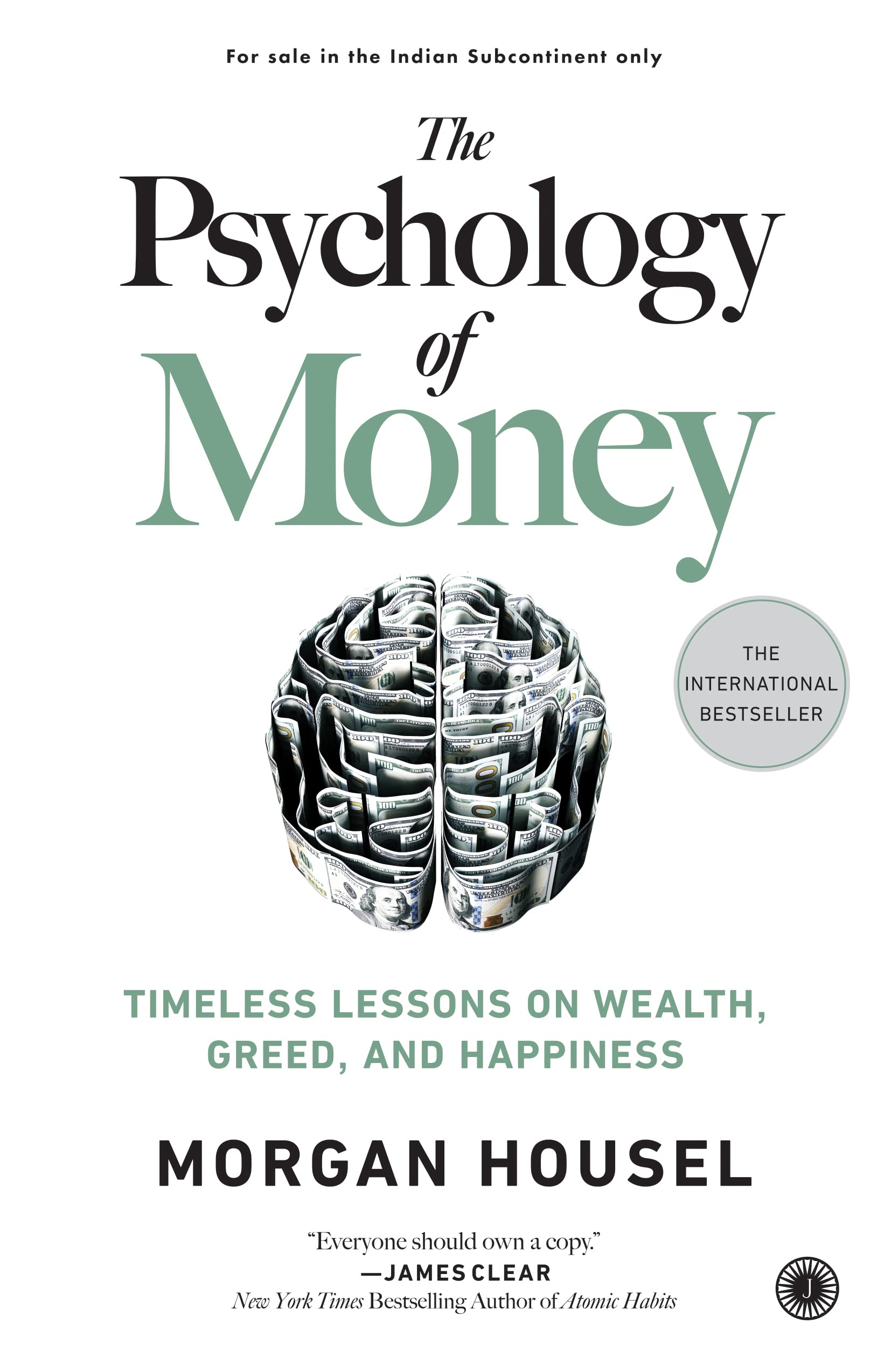The Psychology of Money

SUMMARY
When we think of relationships, we often think of our relationships with our spouse, friends, parents and children. But there is a relationship which is foundational to our well-being and that is the relationship we have with money.
Money is something that affects all of us and confuses most of us. To get the best out of our relationship with money , we hence need more clarity on the following aspects :
· Aspect A -Knowing ourselves better
· Aspect B -Knowing what money can do
· Aspect C- An understanding of the external environment that our relationship with money operates in
In his book “The psychology of money” Morgan Housel explores these aspects with easy-to-follow examples and helps provide a blueprint for improving our relationship with money.
Let’s explore these aspects in more detail:
Aspect A: Knowing ourselves:
· A person’s investment decisions are heavily influenced by the experiences they have had in their life. Someone who invests in fixed deposits primarily, could unconsciously be taking a risk-free approach due to an adverse event earlier in life, like a father’s business incurring losses. Some self-reflection on why we are investing the way we are can help correct our investment decisions(increasing equity exposure in the portfolio instead of 100% in fixed deposits).
· Having a sense of enough. Rajat Gupta, the ex-CEO of McKinsey was worth about $100M when we engaged in insider trading and was subsequently sentenced to time in prison. He risked everything he had in the pursuit of more money and lost it all. He did not have a sense of enough. One of the hardest financial skills to have is getting our personal wealth goalpost to stop moving. Trying to keep up with other people’s wealth and lifestyle can potentially lead us down the path of self-destruction. Draw a line as to how much is “enough” financially and avoid taking unnecessary risks in the pursuit of “more”.
· Focus on the savings rate. Most of us focus on trying to earn more. This is a good goal but if the expenses/lifestyle increases with an increase in our income, accumulation of wealth does not happen. To avoid this, focusing on our savings rate (savings as a % of income) and reducing our expenses/lifestyle helps accelerate wealth accumulation.
Aspect B : Knowing what money can do:
· Time in the market beats timing the market. Compounding is how an asset’s earnings are reinvested to generate additional returns over time. When a financial asset is left undisturbed for a reasonably long period of time, it generates significant returns. Most of us tend to react to events that happen (Russia-Ukraine conflict for example) and churn our portfolio by trying to sell when the market is high and buy when the market is low. A better strategy would be to pick good, valuable assets and leave them undisturbed for long periods of time. That helps with accumulation in the long run. Aiming for good returns over a long period of time is better than aiming for extraordinary returns in short time durations.
· Control over one’s time is the biggest benefit that money pays: Waking up in the morning and being able to say “ I can do whatever I want today” is the highest form of wealth. Control over one’s time is a variable that gives far more happiness than the size of one’s house, bank balance or car. Having a sense of enough can help us reach faster to the point of having control over our time.
Aspect C :An understanding of the external environment we operate in:
· Luck plays a big part in financial success. It is natural for us to admire others who have doubled their investment in a short period of time. It is also natural for us to look down upon those who have lost a lot of their investments due to bad decisions. Both are false emotions. Luck plays a big part in financial success and failure. Trying to copy or emulate someone’s financial strategy can backfire for the simple reason that one might not be that lucky!
· Plan for a plan not going to plan. “Everyone has a plan until they get punched in the face”-Mike Tyson. Can you survive your assets/investments declining by 30%? If the answer is yes, then you are well-positioned to manage through any sudden market corrections. Avoiding single points of failure and excessive borrowing to fund investments go a long way in accelerating wealth accumulation.
· Everyone has a different goal when it comes to investing. We all receive advice/tips from our well-wishers (buy bitcoin or buy Tesla). Always keep in mind the goal of the well-wisher. Are they looking to buy and sell in a very short time period or are they looking at a 5–10-year horizon? Knowing this will greatly help in evaluating and acting upon the advice received.
The Psychology of money is an easy-to-follow read, packed with facts, examples and philosophies to help better our relationship with money. It helps us navigate our way through the deep, uncertain waters that the world and its economies are currently operating in.
Related Articles
Need More Information?
Have questions about this article? We're here to help! Send us a message and we'll get back to you soon.
Or email us directly at support@resumekart.com


